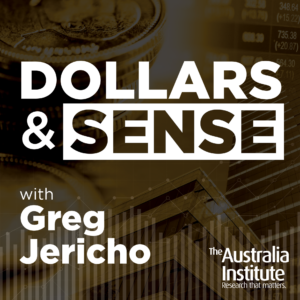Wages are up! And, why non-compete clauses are bad for the economy
Wages are up over the past year, for the first time since 2021! Which means your real wage has increased as well, but by a small amount. Also this week, the Bureau of Statistics looked at restraint clauses, or non-compete clauses. So what do they mean for workers, and the economy as a whole? Lower wages, funnily enough.
Greg Jericho is Chief Economist at the Australia Institute and the Centre for Future Work and popular columnist of Grogonomics with Guardian Australia.
In Dollars & Sense, each week, Greg Jericho will dive into the latest economic figures, and explain what they can tell us about what’s happening in the economy, how it will impact you and where things are headed.
Recorded on Thursday 22nd February 2024. Follow us on Twitter and Instagram or visit our website.
Subscribe to Between the Lines, the Australia Institute’s fortnightly-ish newsletter.
Host: Greg Jericho, Chief Economist, the Australia Institute and Centre for Future Work
Producer: Jennifer Macey
Theme Music: Blue Dot Sessions
Between the Lines Newsletter
The biggest stories and the best analysis from the team at the Australia Institute, delivered to your inbox every fortnight.
You might also like
If business groups had their way, workers on the minimum wage would now be $160 a week worse off
Had the Fair Work Commission taken the advice of business groups, Australia lowest paid would now earn $160 less a week.
The continuing irrelevance of minimum wages to future inflation
Minimum and award wages should grow by 5 to 9 per cent this year
BREAKING: Australia’s housing market still cooked
Even the Mathias Cormann-led OECD says the capital gains tax discount and negative gearing are a problem.





